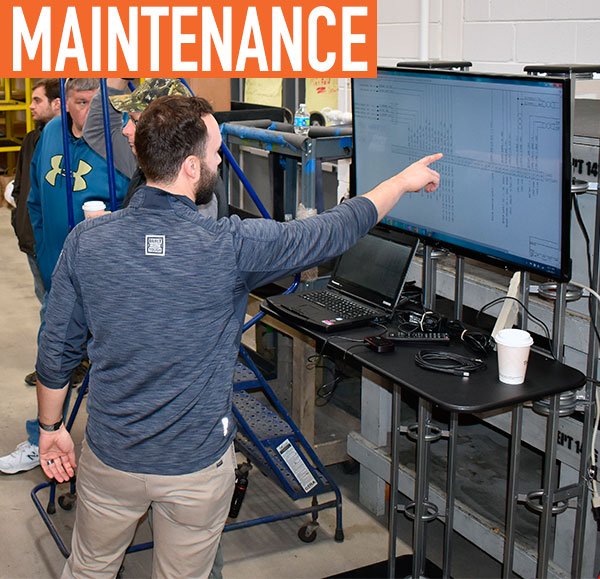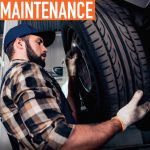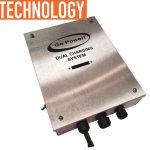Automotive technicians don’t need to worry when they hear “propane.” Aside from a few differences, propane autogas vehicles are much like conventionally fueled models when it comes to keeping them running. And in some cases they’re even easier. Here are four tips to consider when maintaining a propane vehicle:
1 Don’t be afraid of alternative fuels.
Propane has fueled vehicles for more than 100 years. More than 27 million vehicles travel worldwide with propane autogas in their fuel tank. This includes school buses, delivery vans, construction trucks, transit vehicles, and more.
Although propane is referred to as “propane autogas” when used as an on-road transportation fuel, it’s the same product used to heat homes or fire a backyard grill. It’s a cost-saving energy source that has made strides in the US transportation industry. For more than 30 years, the cost of propane has been, on average, 30 to 40% less than the cost of gasoline. The cost differential between propane and diesel is 40 to 50%.

In 2017, ROUSH CleanTech held 82 training sessions, taught at 278 locations, and instructed 950 technicians about propane autogas.
Propane autogas is a readily available, domestically produced transportation fuel. More than 90% of the United States’ propane supply is produced domestically with an additional 7% from Canada.
Propane autogas vehicle maintenance shop requirements aren’t complicated. In most cases, if a maintenance garage is up to code for gasoline and diesel trucks, little to no shop modifications are required to service propane vehicles. Other alternative fuels, such as natural gas, may require additional facility gas detection and ventilation equipment.
2 Understand that propane is safe for drivers and the environment.
As an approved alternative fuel under the Clean Air Act, propane autogas is a nontoxic, non-carcinogenic, and non-corrosive fuel. The Environmental Protection Agency classifies the fuel as a non-contaminant. Propane vehicle fuel tanks are 20 times more puncture-resistant than diesel tanks and can withstand four times the pressure.
A propane autogas vehicle is equipped with a fuel rail assembly, fuel line assembly, fuel tank assembly, and the powertrain control system. These systems run a closed-loop system, meaning the fuel is never exposed to air and won’t spill. That means no messy fuel spills or smells. Fueling speed is comparable to a diesel vehicle.
With three parts carbon and eight parts hydrogen, propane is a clean-burning, low-carbon fuel. When compared with gasoline, vehicles fueled by propane autogas produce up to 25% fewer greenhouse gases, 20% less nitrogen oxide, up to 60% less carbon monoxide, and 40% fewer smog-producing hydrocarbons while fueling. Compared with diesel, propane fuel systems emit 80% fewer smog-producing hydrocarbons and virtually eliminate particulate matter. Therefore, drivers aren’t exposed to the harmful particulate matter in diesel exhaust, which is known to aggravate asthma and identified as a carcinogen by the World Health Organization.
Plus, propane trucks lower noise pollution. They reduce noise levels by about half compared to a diesel engine. While diesel engines are commonly associated with producing noticeable engine noise, propane engines allow drivers to better hear and communicate with any passengers onboard and, more importantly, at loading zones.

TAKE NOTE
PROPANE AUTOGAS STATS
• Propane autogas is the leading alternative fuel in the United States and the third most commonly used vehicle fuel behind gasoline and diesel.
• Propane autogas fueling infrastructure costs less than any other transportation energy source—conventional or alternative.
• Propane autogas is naturally lower in nitrogen oxides (NOx) than diesel and gasoline. The EPA regulates NOx emissions as exposure can trigger health problems such as asthma, bronchitis, and other respiratory issues.
• ROUSH CleanTech deployed more than 18,000 Ford vehicles and Blue Bird school buses fueled by propane autogas to fleets across North America, including AmeriPride, Bimbo Bakeries USA, ConocoPhillips, Frito-Lay, Nestlé Waters, and U-Haul.
3 Know the maintenance differences.
Today’s diesel vehicles may be cleaner than years past, but they are cleaner through complexity, like expensive equipment and high-maintenance systems, which aren’t required on propane autogas models. Engines fueled by propane require less oil by volume than diesel with no additional diesel emission fluids or extra valve adjustments. There is no need to service pricey diesel after-treatment items, such as maintenance parts and fluids, because propane’s chemical properties allow it to power an engine while reducing the emissions released into the atmosphere.
Propane autogas vehicles don’t have cold-start issues since propane remains in a liquid state until it reaches the cylinder. This cutting-edge technology alleviates cold-weather start issues associated with vapor technology propane systems of the past. A dedicated liquid propane fuel system provides for unaided cold-weather starts down to minus 40 degrees Fahrenheit. There is no gelling at extremely cold temperatures and no need for engine block heaters.
Another difference is when depressurizing the fuel lines in a propane autogas vehicle; simply follow manufacturer recommended procedures. Fuel lines typically maintain pressure after shutdown.
4 Follow the owner’s manual.
Just like with any vehicle, always refer to the vehicle owner’s manual for regular maintenance. Follow the manufacturer’s recommended oil change intervals. Propane burns so clean that often your oil will still look new when it’s time to change it. This helps keep your propane autogas engine clean, but the oil should still be changed at the recommended interval. Make sure you use the proper oil levels with fuel filters changed every 50,000 miles. Continue with basic maintenance—changing and inspecting spark plugs, air filters, battery, etc. when recommended—just like you would with conventionally fueled vehicles.
If you have questions about the propane fuel system in your vehicle, call the fuel system manufacturer. They should be able to help you with the propane system components and might recommend a workshop to further your knowledge about the propane system. For all non-propane-related questions, contact the vehicle manufacturer directly.
ABOUT THE AUTHOR
Todd Mouw is president of ROUSH CleanTech, an industry leader of alternative fuel vehicle technology. Mouw has served as president of the NTEA Green Truck Association. Reach him at todd.mouw@roush.com or 800.59.ROUSH. Find out more, visit www.roushcleantech.com.
MODERN WORKTRUCK SOLUTIONS: MAY 2019 ISSUE
Did you enjoy this article?
Subscribe to the FREE Digital Edition of Modern WorkTruck Solutions magazine.





